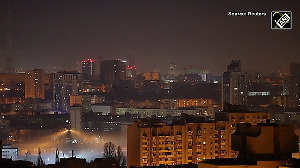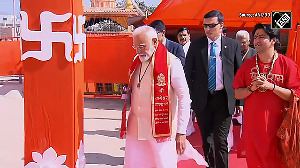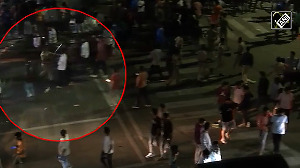Pakistan will ban the Jamaat-ud-Dawah and other organisations if there is evidence that they were involved in the Mumbai terror attacks, a top security official said on Wednesday.
Mahmud Ali Durrani, Adviser to the Prime Minister on National Security, said if evidence is found of the Jamaat being involved in the attacks, it would be banned. Durrani told Geo News channel that if any evidence pointed to any other organisation during investigations, they too would be banned.
His comments echoed remarks by Pakistan's UN Ambassador Abdullah Hussain Haroon that the Jamaat could be banned and its assets frozen on the request of the UN Security Council.
Hussain made the remarks after India asked the UN Security Council to 'proscribe the Pakistani group Jamaat-ud-Dawah since it is a terrorist outfit and should be proscribed under Security Council Resolution 1267'.
Security Council Resolution 1267 imposed sanctions on supporters of Al Qaeda, Osama bin Laden and the Taliban. Individuals and groups banned under the measure face travel ban and asset freeze.
Speaking to media persons in Multan on Wednesday afternoon, Prime Minister Yousuf Raza Gilani too indicated that the government believed the Jamaat is a front organisation for the Lashkar-e-Tayiba.
"The LeT is a banned group. If its members become part of the Jamaat-ud-Dawah, what will be its status," he asked.
He, however, said the recent crackdown on the Jamaat did not come because of Indian pressure and the US had had concerns about the group since 2002.
"The LeT was banned long ago. The main members of the LeT became part of the Jamaat-ud-Dawah. The US thinks the LeT and Jamaat-ud-Dawah are one and the same," he said.
The Jamaat was formed by LeT founder Maulana Masood Azhar after the Lashkar was banned by the Pakistan government in 2001. Azhar and two other terrorists were freed by India in exchange for the passengers of an Indian Airlines flight that was hijacked from Kathmandu to Kandahar in 1999.





 © 2025
© 2025